14. Ain’t No Tomorrows (Yuki Tanada, 2008)
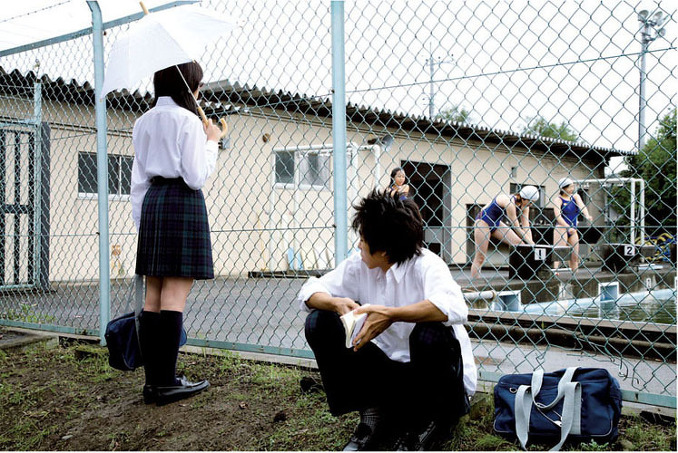
The film revolves around three schoolmates and their relationship with girls. Mikio is in love with Natsuko, who suffers from health issues. One day, he comes across her on a date with one of their professors and subsequently blackmails her to have sex with him. Akihiro discovers an unconscious Chizu, with blood running between her legs.
The girl, who grows up without a mother and has no knowledge of female anatomy whatsoever, asks him not to reveal the incident and subsequently, asks him to teach her about sex. Anpai is plump and rather “slow” and the two aforementioned boys tend to grope his chest, imagining he is a girl and even paying him afterward. Eventually, the class’s “belle”, who is tired by the boys that crave her just for her breasts, approaches him and the two initiate a romantic relationship.
Yuki Tanada continues the same practice as he did in “Moon and Cherry”, exploring the extreme sexual tendencies of young individuals. However, she approaches her theme through an angle that mainly focuses on romance rather than sex. Her use of humor may be preposterous at times, but nevertheless it’s always hilarious and is the primary reason the film does not become a melodrama.
The production features Sakura Ando as Chizu, who is now considered one of the stars of Japanese independent cinema, in the second role of her career.
15. 9 Souls (Toshiaki Toyoda, 2003)
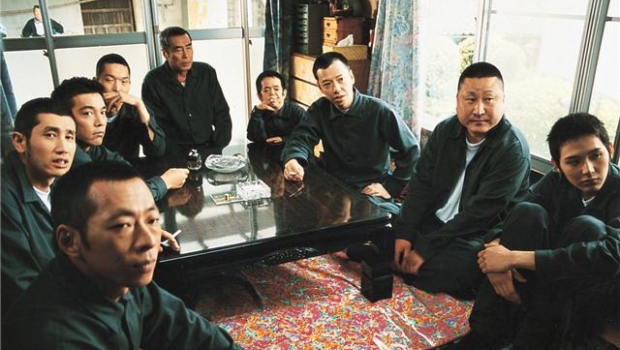
Nine convicts escape prison, steal a van from a strip club, and proceed to search for a money stash hidden by another convict. However, the sum is not in the designated place and one by one, they gradually leave to attend unfinished business.
Toshiaki Toyoda wrote and directed a surreal film that keeps a difficult balance between comedy and melodrama. His greatest achievement lies with the conception of the characters and the presentation of their resonance, with one example being the combination of a patricide and a filicide. He also includes a number of surreal and preposterous scenes, like the one with the sheep and the one in the strip club in the middle of nowhere that also includes an excellent song by Maki Asakawa.
The film features an ensemble cast, including Yoshio Harada, Ryuhei Matsuda, Eita, Jun Kunimura and Takako Matsu, all of who act quite competently.
16. Monday (Sabu, 2000)

“Monday” is a black comedy concerning Koichi Takagi, a man who wakes up in a hotel room on a Monday morning, trying to recollect what happened over the weekend.
Gradually he recalls that he attended a funeral, when he receives a phone call informing the funeral attendants that the deceased had a pacemaker that needs to be removed. The one tasked with the duty is Koichi. From that point on, his weekend keeps getting worse, in a story that involves Yakuza, heavy drinking, and a difficult choice he has to make.
Sabu directs and writes an intelligent satire concerning contemporary Japan and its underworld, through a pitiful salary man who suddenly gains power and decides to fight back against his misery. Furthermore, he includes a clear message regarding excessive drinking and gun control; however, he presents it in an entertaining manner rather a moralistic one.
Shinichi Tsutsumi is excellent in the leading role, managing to provide his character with a certain “weight” amidst a plethora of tragicomic events.
17. Harmful Insect (Akihiko Shiota, 2001)
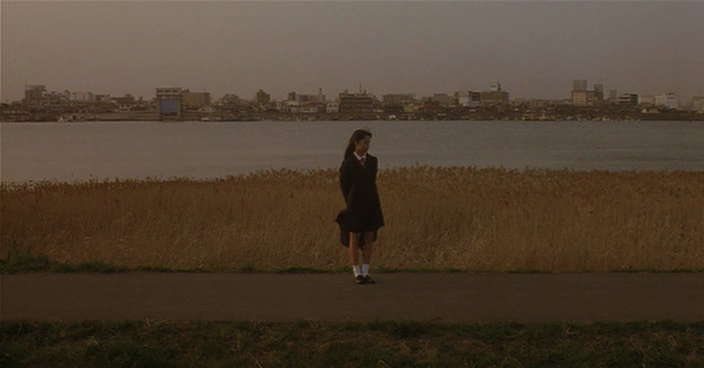
“Harmful Insect” is a coming of age film regarding a junior high student, Sachiko, who has a plethora of problems. Her father has abandoned her, and her mother has developed suicidal tendencies, extreme mood swings and a peculiar taste in boyfriends. Furthermore, her beloved sixth grade teacher has been forced to retire due to rumors of having an affair with her.
Due to the aforementioned, Sachiko has become detached from both school and her home environment, thus resulting in her skipping classes and roaming the streets with a teenage delinquent and Mr. Kyuzo, a vagrant with the mind of a child.
Akihiko Shiota presents a girl that does not seem able to get a break, thus becoming an utterly tragic figure, a fact further stressed by her attitude. She tries to appear strong and serene, rarely uttering a single word. However, she is deeply sensitive, and uses that tactic to cope with her problems and her silence to hold her issues hidden inside her. Nevertheless, the growing distance between her attitude and her feelings unavoidably result in an eruption, and subsequently, to despair.
Additionally, he draws largely from Aoi Miyazaki’s looks (she is considered one of the most beautiful women in Japan today) to present beauty as a burden, largely due to the conduct of men toward it.
Moreover, the skillful conclusion gives a meaning to the term “tragic irony” that should also be noted.
Aoi Miyazaki gives a competent performance as Sachiko, using the genuine Japanese way of acting; scarcely talking, but presenting a variety of feelings through body language and stares.
18. All About Lily Chou-Chou (Shunji Iwai, 2001)
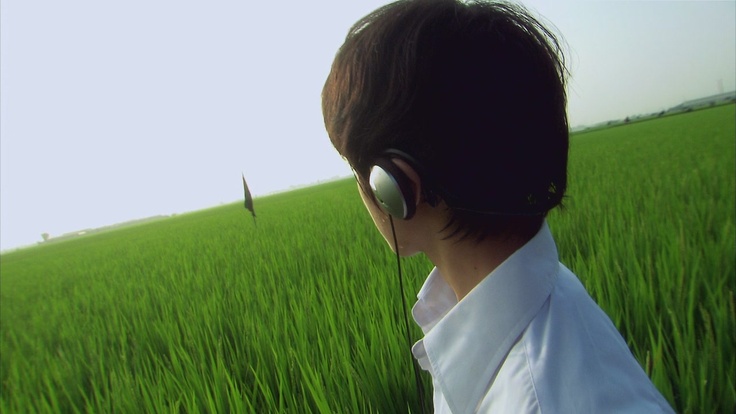
Yuichi is a lonely and shy 14-year-old boy who lives in a rural town with his mom, her boyfriend and the latter’s son. He idolizes Lily Chou Chou, a pop artist, even using the nickname “Lily-philia” when he joins her fan club on her website.
His classmates have been picking on him since high school, a fact that has alienated him almost completely since he only has one friend, Hoshino, a partner in Kendo. However, after an eventful trip to Okinawa over the summer that results in Hoshino having a near-death experience, upon their return to school the fall he transforms into a cruel and sadistic bully.
He forces Yuichi to steal money and deliver it to him and even prostitutes a classmate, Shiori, forcing her to have sex with older men and keeping the majority of the money she makes for himself. Shiori has feelings for Yuichi; nevertheless, he is interested in Yoko, another alienated student, who is a rather talented pianist.
Iwai directed and wrote a film regarding school alienation and the terrifying cruelty of teenagers. However, he does so in an abstract way, both in terms of the story’s progress and in terms of the presentation of his themes. His style is chiefly represented in the concept of Lily Chou Chou, a pop idol who never really appears in the film, although her impact is evident by the protagonists’ conduct.
His tactics are also evident in the cinematography, with a plethora of out-of-focus shots that offer extensive images of the young actors’ sentiments. Lastly, he provides a clear message about the pop idol concept in Japan that, according to him, is a result of people’s neediness due to alienation.
19. Adrift in Tokyo (Satoshi Miki, 2007)
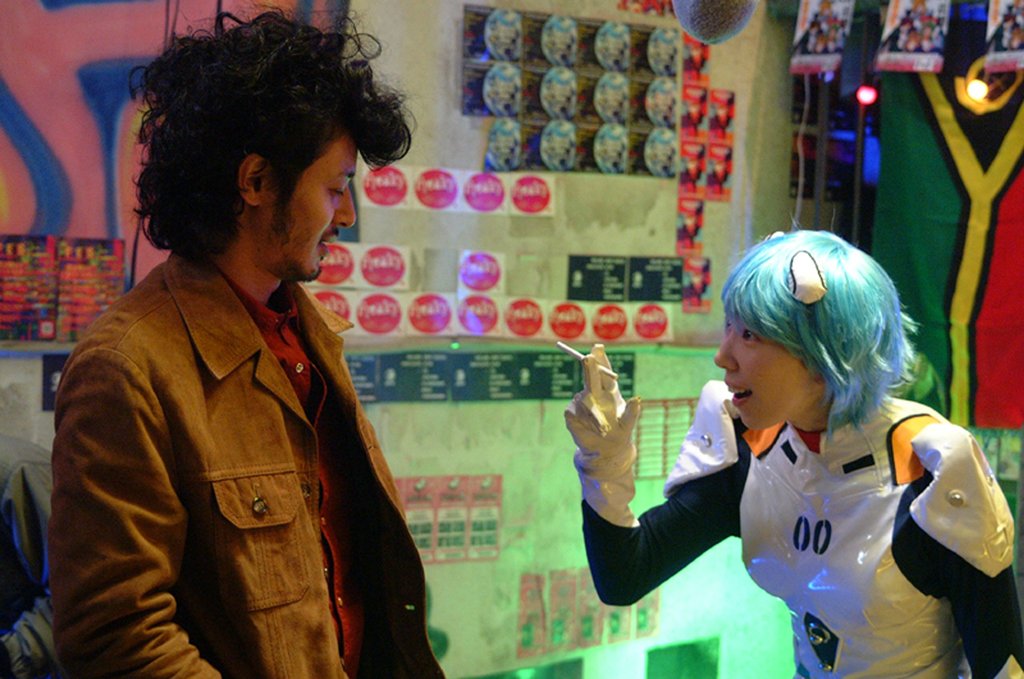
Based on the novel by Yoshinaga Fujita, this particular film tells the story of Fumiya, a lazy student with an enormous debt of 800.000 yen, and Aichiro, a debt collector who visits him to claim the money.
However, instead of the usual practice in similar situations, the latter offers to loan Fumiya 1 million yen if he walks with him throughout Tokyo for as long as he demands. Unavoidably, he accepts and a trip initiates through the streets of Tokyo, with the two of them revealing their backgrounds while creating a peculiar relationship through a series of unexpected events.
Miki directs a blend of comedy and drama that focuses on the strangeness of everyday life. The key characteristics of the contemporary independent cinema are all present: long, quiet moments, scarce dialogue, observant shots of the environment, and unanticipated scenes of humor and surrealism.
Furthermore, he draws heavily on the chemistry of the two protagonists that are mainly connected by what they lack: Fumiya’s lack of a father and Aichiro’s lack of a son. Their resonance is the film’s strongest asset, since both Joe Odagiri as the former and Tomokazu Miura as the latter are quite convincing in their respective roles.
20. Eureka (Shinji Aoyama, 2000)
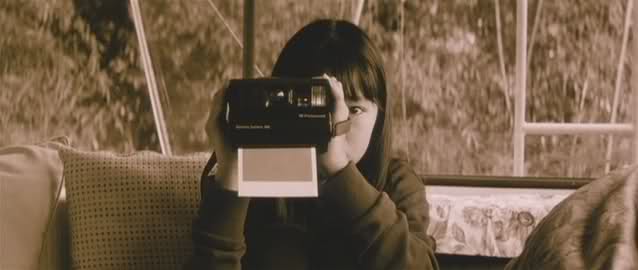
Two teenage siblings, Naoki and Kozue, along with a bus driver, Makoto are the sole survivors of a vehicle’s hijacking by a paranoid killer. The three flee together; however, after a fashion, the teenagers become orphaned, Makoto’s spouse leaves him, and he is accused of a series of murders in his neighborhood.
The three of them wind up living together in the teenagers’ house, along with their cousin, Akihiko. Shortly after, Makoto buys a tattered bus and the four of them embark on a road trip through Kyushu in an attempt to overcome their traumas.
Aoyama shot this 4-hour dramatic road movie almost completely in sepia tone, in an attempt to highlight the beauty of the natural world, as a measure of healing. Furthermore, he presents the facts, particularly the violent ones, in a subtle, almost transparent way, through their consequences upon the protagonists. For example, the hijacking is never shown in the film, just its aftermath.
Aoyama stated that his inspiration for the film was the increasing level of blind violence in Japan, whose dramatic repercussions he portrayed here, particularly through Naoki, who is shocked to the point of muteness.
Lastly, he draws excellent performances from his protagonists, Koji Yakusho as Makoto, the actual siblings Aoi and Masaru Miyazaki, and Yoichiro Saito as Akihiko, in this highly artistic film.
Author Bio: Panos Kotzathanasis is a film critic who focuses on the cinema of East Asia. He enjoys films from all genres, although he is a big fan of exploitation. You can follow him on Facebook or Twitter.